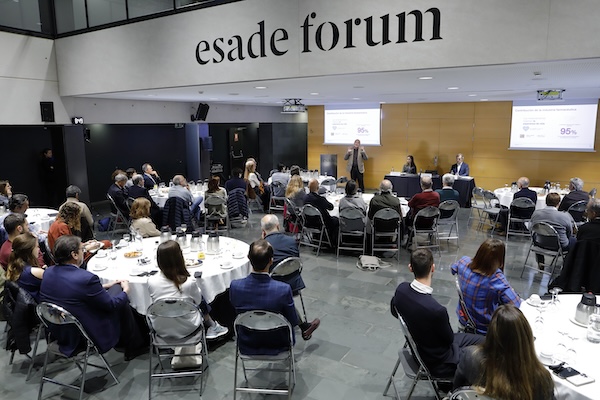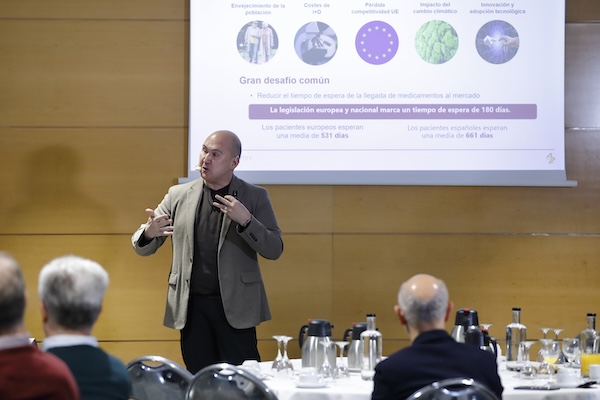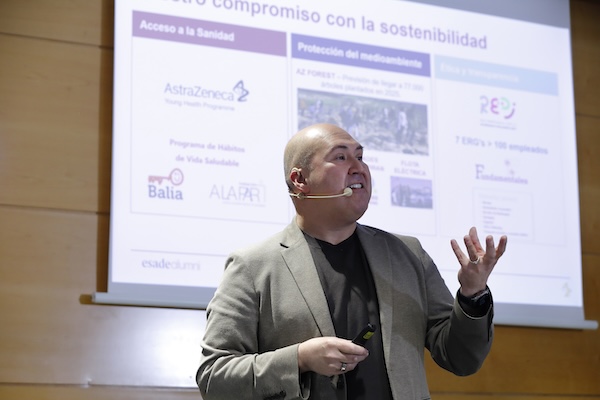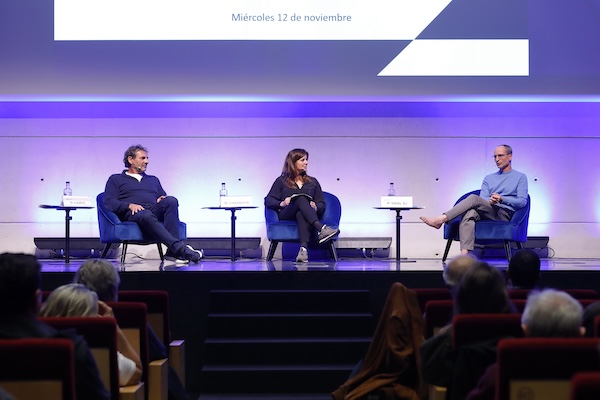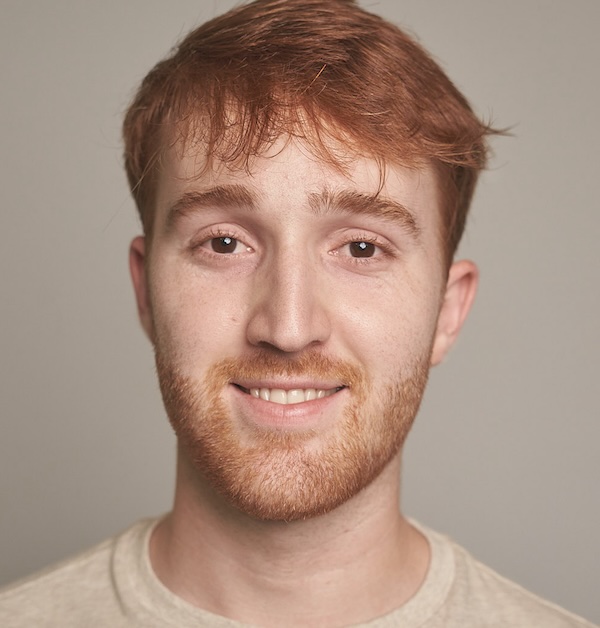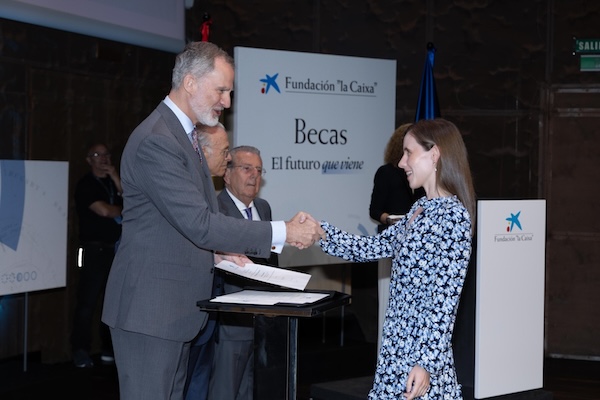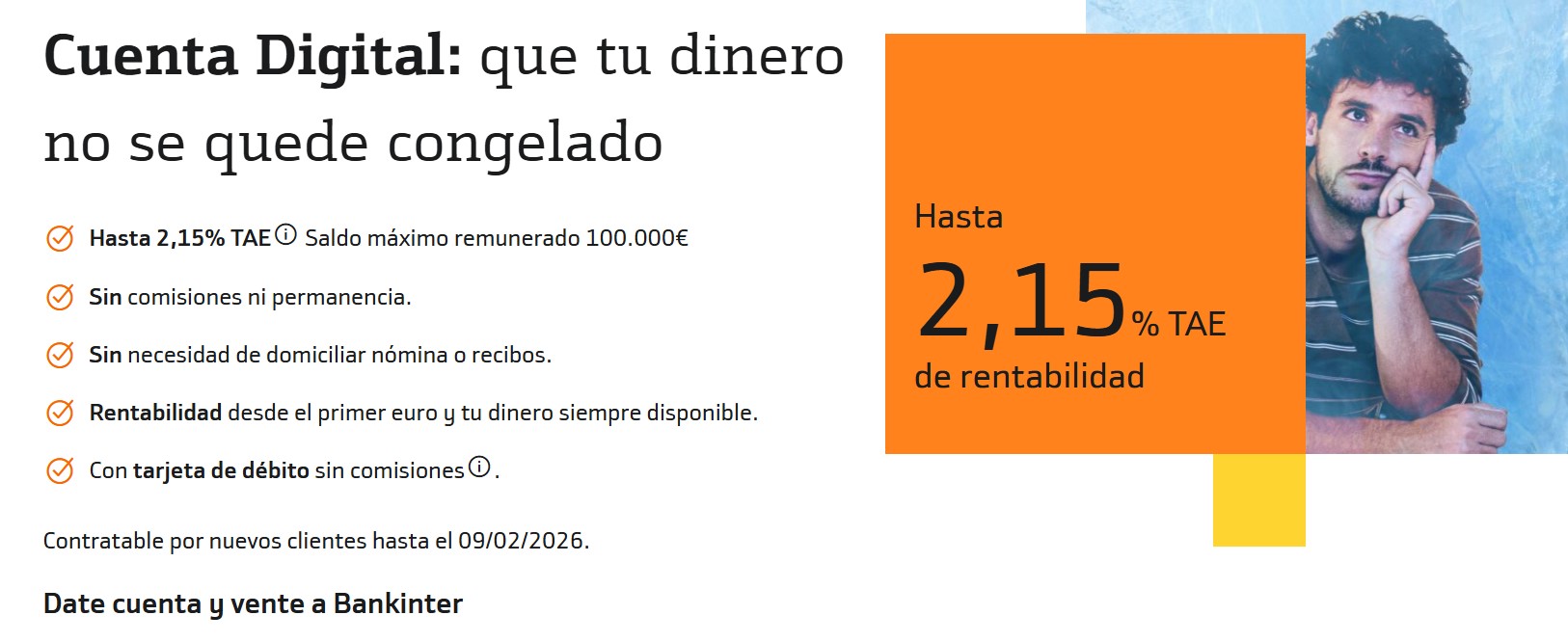DKV Health Insurance
ESADE Alumni and the insurance company DKV Seguros have signed an agreement under which association members and their immediate family (spouses and children) can take out a DKV Integral and DKV Mundisalud policy under more advantageous conditions.
Over 6 million European customers already trust DKV!
Exclusive benefits with DKV
- Once you have been insured with DKV for three years, the company will never cancel your policy.
- Indemnity for each day of hospitalisation not covered by DKV.
- Additional services at no extra charge: worldwide emergency healthcare during trips of up to 90 days, dental care, health club membership and international second opinion coverage.
- Additional services with deductible: laser eye surgery, breast reconstruction, family planning techniques, aesthetic medicine, psychology and geriatric care.
- Preventive medicine programmes: paediatric care, gynaecological cancer, coronary risk, oral health.
- Work-related and traffic accidents.
- 18,000 doctors and 1,000 clinics in the DKV healthcare network.
DKV Integral: I Like Being Taken Care Of
This health insurance policy guarantees top-quality healthcare and the personal treatment you expect when you visit a doctor or clinic.
Emergency treatment, primary care, specialists, complementary diagnostic resources, hospitalisation and surgery. Everything is covered, with no cost limits, by our team of participating doctors.
Additional services: laser refractive surgery, inclusive dental services, fertility and assisted reproduction services, and clinical psychology treatment (15 sessions per policyholder per year).
More information about DKV Integral
Comprehensive premiums for 2024 (euros/month)
|
Age
|
Men
|
Women
|
|
from 0 to 19 years old
|
76,09€
|
76,09€
|
|
from 20 to 30 years old
|
70,66€
|
77,90€
|
|
from 31 to 49 years old
|
76,09€
|
85,15€
|
|
from 50 to 59 years old
|
108,71€
|
108,71€
|
|
more than 59 years old
|
117,75€
|
117,75€
|
Special conditions for ESADE alumni
- No co-payment.
- Payment by instalments at no additional fee.
- No exclusion periods (except for childbirth) if you sign up for the insurance policy within 90 days of its introduction (after this period, the standard exclusion period shall apply).
- Any declared pre-existing conditions shall be excluded.
DKV Mundisalud Classic: If I Can Choose, I Feel Free
With this policy, you can visit any doctor's office or clinic in Spain or abroad, even if it is not included in our team of participating professionals. Expenses are reimbursed if you visit a non-participating doctor's office or clinic. This way, you are free to choose your care provider anywhere in the world. You can also visit any of our participating doctor's offices or clinics free of charge, with no co-pay.
Participating centres: 100% coverage
Non-participating centres: reimbursement of 90% abroad and 80% in Spain
More information about DKV Mundisalud
Comprehensive premiums for 2024 (euros/month)
| Age |
Men
|
Women
|
| from 0 to 19 years old |
110,71€
|
110,71€
|
| from 20 to 30 years old |
106,83€
|
118,48€
|
| from 31 to 49 years old |
110,71€
|
126,75€
|
| from 50 to 59 years old |
174,80€
|
180,63€
|
| more than 59 years old |
190,35€
|
190,35€
|
Special conditions for ESADE alumni
- No co-payment.
- Payment by instalments at no additional fee.
- No exclusion periods (except for childbirth) if you sign up for the insurance policy within 90 days of its introduction (after this period, the standard exclusion period shall apply).
- Any declared pre-existing conditions shall be excluded.
Consulta la GUIA de la red DKV de servicios sanitarios
Contact with DKV:
Gerard Gómez Agramunt
Tel: 93 481 62 54/ Mov: 691 668 800
email: gerard.gomez@segurosdkv.es

